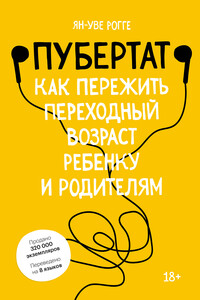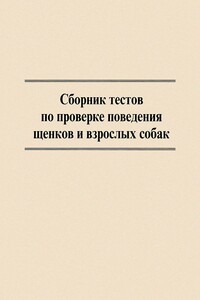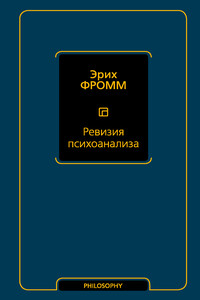Токсичный позитив. Как перестать подавлять негативные эмоции и оставаться искренними с собой (примечания)
1
белл хукс (англ. bell hooks, настоящее имя — Глория Джинн Уоткинс, 1952–2021) — исследовательница интерсекциональности. Она намеренно писала свой псевдоним со строчных букв в знак того, что идеи важнее идентичностей. Прим. пер.
2
Ruan, Yan, Harry T. Reis, Wojciech Zareba, and Richard D. Lane. “Does Suppressing Negative Emotion Impair Subsequent Emotions? Two Experience Sampling Studies”. Motivation and Emotion 44, no. 3 (2019): 427–435. https://doi.org/10.1007/s11031-019-09774-w.
3
Ehrenreich, Barbara. “The Dark Roots of American Optimism.” Essay. In Bright-Sided: How the Relentless Promotion of Positive Thinking Has Undermined America. Waterville, ME: Thorndike Press, 2010.
4
Ehrenreich, Barbara. “The Dark Roots of American Optimism.” Essay. In Bright-Sided: How the Relentless Promotion of Positive Thinking Has Undermined America. Waterville, ME: Thorndike Press, 2010.
5
Nicole, Riger R. “From the Archives: The Five Points of Calvinism.” Reformed Faith & Practice, May 25, 2016. https://journal.rts.edu/article/from-the-archives-the-five-points-of-calvinism.
6
“New Thought.” Encyclopedia Britannica. Encyclopedia Britannica, Inc. Accessed June 2, 2021. https://www.britannica.com/event/New-Thought.
7
Ehrenreich, Barbara. “The Dark Roots of American Optimism.” Essay. In Bright-Sided: How the Relentless Promotion of Positive Thinking Has Undermined America. Waterville, ME: Thorndike Press, 2010.
8
«Закон притяжения» (англ. Law of attraction) — вера в то, что мысли человека представляют собой энергию, которую можно направить на нужный объект и тем самым «притянуть» его в свою жизнь. Прим. ред.
9
Gottschalk, Stephen. “Mary Baker Eddy.” Encyclopedia Britannica. Encyclopedia Britannica, Inc., July 20, 1998. https://www.britannica.com/biography/Mary-Baker-Eddy.
10
Duclow, Donald. “William James, Mind-Cure, and the Religion of Healthy-Mindedness.” Journal of Religion and Health, March 2022. https://doi.org/10.1023/A:1015106105669.
11
Duclow, Donald. “William James, Mind-Cure, and the Religion of Healthy-Mindedness.” Journal of Religion and Health, March 2022. https://doi.org/10.1023/A:1015106105669.
12
Hill, Napoleon. Think and Grow Rich. Sound Wisdom, 2016.
13
Peale, Norman Vincent. The Power of Positive Thinking. Samaira Book Publishers, 2019.
14
Yakushko, Oksana. Scientific Pollyannaism: From Inquisition to Positive Psychology. Springer, 2019.
15
Yakushko, Oksana. Scientific Pollyannaism: From Inquisition to Positive Psychology. Springer, 2019.
16
Издана на русском языке: Уотсон Дж. Психология с точки зрения бихевиориста // Хрестоматия по истории психологии / под ред. П. Я. Гальперина, А. Н. Ждан. М.: Изд-во МГУ. Прим. ред.
17
Hicks, Esther, and Jerry Hicks. The Law of Attraction: The Basics of the Teachings of Abraham. 1>st ed. Hay House, Inc., 2006.
18
Coffey II, John K. “Happier Babies Have an Edge.” Scientific American, October 16, 2019. https://blogs.scientificamerican.com/observations/happier-babies-have-an-edge.
19
Vassallo, S., and A. Sanson (Eds.) “The Australian Temperament Project.” Australian Institute of Family Studies, May 30, 2013. https://aifs.gov.au/publications/australian-temperament-project.
20
Hurst, Katherine. “Manifestation Guide: How To Manifest Anything You Want In 24hrs.” TheLawOfAttraction.com. Greater Minds. Accessed June 2, 2021. https://www.thelawofattraction.com/manifest-something-want-24hrs-less.
21
Oettingen, Gabriele. Rethinking Positive Thinking: Inside the New Science of Motivation. Current, 2015.
22
Издана на русском языке: Экер Харв Т. Думай как миллионер. 17 уроков состоятельности для тех, кто готов разбогатеть. М.: Эксмо, 2021. Прим. ред.
23
Eker, T. Harv. Secrets of the Millionaire Mind: Mastering the Inner Game of Wealth. Harper Business, 2005.
24
Fairs, Marcus. “Google Has Had Negative Effect on Office Design Says Jeremy Myerson.” Dezeen, March 10, 2021. https://www.dezeen.com/2016/03/22/google-office-design-negative-effect-interiors-jeremy-myerson.
25
Janice, Irving. Essay. In A First Look at Communication Theory, 235–246. New York: McGraw-Hill Education, 1991.
26
Duncan, Cath. “A User’s Guide to Creative Tension.” Productive Flourishing, June 7, 2010. https://www.productiveflourishing.com/a-users-guide-to-creative-tension.
27
Издана на русском языке: Сенге П. Пятая дисциплина. Искусство и практика обучающейся организации. М.: Манн, Иванов и Фербер, 2018. Прим. ред.
28
Jiménez, Jacinta M. “Toxic Positivity: The Unexpected Killer of Creativity in the Workplace.” LinkedIn, November 27, 2019. https://www.linkedin.com/pulse/toxic-positivity-unexpected-killer-creativity-jiménez-psyd-bcc.
29
Jiménez, Jacinta M. “Toxic Positivity: The Unexpected Killer of Creativity in the Workplace.” LinkedIn, November 27, 2019. https://www.linkedin.com/pulse/toxic-positivity-unexpected-killer-creativity-jiménez-psyd-bcc.
30
Dahl, Melissa. “Huh, Would You Believe That Forcing Employees to Act Happy Is a Terrible Idea?” The Cut, November 7, 2016. https://www.thecut.com/2016/11/forcing-employees-to-act-happy-is-a-terrible-idea.html.
31
Tritch, Teresa. “Engagement Drives Results at New Century.” Gallup Management Journal, September 11, 2003. https://www.nova.edu/ie/ice/forms/engagement_drives_results.pdf.
32
Bright, David S., Kim S. Cameron, and Arran Caza. “The Amplifying and Buffering Effects of Virtuousness in Downsized Organizations.” Journal of Business Ethics 64, no. 3 (March 2006): 249–269. https://doi.org/10.1007/s10551-005-5904-4.
33
Bright, David S., Kim S. Cameron, and Arran Caza. “The Amplifying and Buffering Effects of Virtuousness in Downsized Organizations.” Journal of Business Ethics 64, no. 3 (March 2006): 249–269. https://doi.org/10.1007/s10551-005-5904-4.
34
Bright, David S., Kim S. Cameron, and Arran Caza. “The Amplifying and Buffering Effects of Virtuousness in Down-sized Organizations.” Journal of Business Ethics 64, no. 3 (March 2006): 249–269. https://doi.org/10.1007/s10551-005-5904-4.
35
Bright, David S., Kim S. Cameron, and Arran Caza. “The Amplifying and Buffering Effects of Virtuousness in Downsized Organizations.” Journal of Business Ethics 64, no. 3 (March 2006): 249–269. https://doi.org/10.1007/s10551-005-5904-4.
36
Поллианна — героиня книг Элинор Портер. Девочка росла в тяжелых условиях, и отец научил ее игре: найти в любой неприятности нечто хорошее. Прим. пер.
37
Andrade, Gabriel. “The Ethics of Positive Thinking in Healthcare.” Journal of Medical Ethics and History of Medicine, December 21, 2019. https://doi.org/10.18502/jmehm.v12i18.2148.
38
Andrade, Gabriel. “The Ethics of Positive Thinking in Healthcare.” Journal of Medical Ethics and History of Medicine, December 21, 2019. https://doi.org/10.18502/jmehm.v12i18.2148.
39
“The Growing Crisis of Chronic Disease in the United States.” Partnership to Fight Chronic Disease. Accessed June 2, 2021. http://www.fightchronicdisease.org/sites/default/files/docs/GrowingCrisisofChronicDiseaseintheUSfactsheet_81009.pdf.
40
“Disability Impacts All of Us Infographic.” Centers for Disease Control and Prevention, September 16, 2020. https://www.cdc.gov/ncbddd/disabilityandhealth/infographic-disability-impacts-all.html.
41
Andrade, Gabriel. “The Ethics of Positive Thinking in Healthcare.” Journal of Medical Ethics and History of Medicine, December 21, 2019. https://doi.org/10.18502/jmehm.v12i18.2148.
42
Andrade, Gabriel. “The Ethics of Positive Thinking in Healthcare.” Journal of Medical Ethics and History of Medicine, December 21, 2019. https://doi.org/10.18502/jmehm.v12i18.2148.
43
“Well-Being Concepts.” Centers for Disease Control and Prevention, October 31, 2018. https://www.cdc.gov/hrqol/wellbeing.htm.
44
Chamberlain, Dale. “Why Christians Should Beware the Trap of Toxic Positivity.” Her & Hymn, November 10, 2020. https://herandhymn.com/2020/06/25/toxic-positivity.
45
Murray, Kelly M., Joseph W. Ciarrocchi, and Nichole A. Murray-Swank. “Spirituality, Religiosity, Shame and Guilt as Predictors of Sexual Attitudes and Experiences.” Journal of Psychology and Theology 35, no. 3 (2007): 222–234. https://doi.org/10.1177/009164710703500305.
46
Ley, David J. “Overcoming Religious Sexual Shame.” Psychology Today, August 23, 2017. https://www.psychologytoday.com/us/blog/women-who-stray/201708/overcoming-religious-sexual-shame.
47
Телепроповедник — христианский проповедник в католических странах, выступающий перед своей аудиторией по телевидению. Прим. пер.
48
Ehrenreich, Barbara. “God Wants You to Be Rich.” Essay. In Bright-Sided: How the Relentless Promotion of Positive Thinking Has Undermined America. Waterville, ME: Thorndike Press, 2010.
49
“In U.S., Decline of Christianity Continues at Rapid Pace.” Pew Research Center’s Religion & Public Life Project, June 9, 2020. https://www.pewforum.org/2019/10/17/in-u-s-decline-of-christianity-continues-at-rapid-pace.
50
Raab, Diana. “What Is Spiritual Bypassing?” Psychology Today, January 23, 2019. https://www.psychologytoday.com/us/blog/the-empowerment-diary/201901/what-is-spiritual-bypassing.
51
Levin, Jeff. “Religion and Mental Health: Theory and Research.” International Journal of Applied Psychoana-lytic Studies, 2010. https://doi.org/10.1002/aps.240.
52
Yakushko, Oksana. Scientific Pollyannaism: From Inquisition to Positive Psychology. Springer, 2019.
53
Yakushko, Oksana. Scientific Pollyannaism: From Inquisition to Positive Psychology. Springer, 2019.
54
Используется также аббревиатура EMDR (Eye Movement Desensitization and Reprocessing). Прим. пер.
55
Cooper, Belle B. “Your Positive Work Culture Might Be Making Your Team Less Productive.” Fast Company, April 25, 2017. https://www.fastcompany.com/40411368/your-positive-work-culture-might-be-making-your-team-less-productive.
56
Andrade, Gabriel. “The Ethics of Positive Thinking in Healthcare.” Journal of Medical Ethics and History of Medicine, December 21, 2019. https://doi.org/10.18502/jmehm.v12i18.2148.
57
Rose, Steve. “Do Positive Affirmations Work? A Look at the Science.” Steve Rose, PhD Counselor, July 25, 2020. https://steverosephd.com/do-positive-affirmations-work.
58
Rose, Steve. “Do Positive Affirmations Work? A Look at the Science.” Steve Rose, PhD, July 25, 2020. https://steverosephd.com/do-positive-affirmations-work.
59
Brackett, Marc A. Permission to Feel: Unlocking the Power of Emotions to Help Our Kids, Ourselves, and Our Society Thrive. New York: Celadon Books, 2019.
60
Kalanthroff, Eyal, Noga Cohen, and Avishai Henik. “Stop Feeling: Inhibition of Emotional Interference Following Stop-Signal Trials.” Frontiers in Human Neuroscience 7 (March 14, 2013). https://doi.org/10.3389/fnhum.2013.00078.
61
Valikhani, Ahmad, Fatemeh Ahmadnia, Alma Karimi, and Paul J. Mills. “The Relationship between Dispositional Gratitude and Quality of Life: The Mediating Role of Perceived Stress and Mental Health.” Personality and Individual Differences 141 (2019): 40–46. https://doi.org/10.1016/j.paid.2018.12.014.
62
Ma, Lawerence K., and Eamonn Ferguson. “Supplemental Material for Does Gratitude Enhance Prosociality?: A Meta-Analytic Review.” Psychological Bulletin, 2017. https://doi.org/10.1037/bul0000103.supp.
63
Jans-Beken, Lilian, Johan Lataster, Denise Peels, Lilian Lechner, and Nele Jacobs. “Gratitude, Psychopathology and Subjective Well-Being: Results from a 7.5-Month Prospective General Population Study.” Journal of Happiness Studies 19, no. 6 (May 30, 2017): 1673–1689. https://doi.org/10.1007/s10902-017-9893-7.
64
Jans-Beken, Lilian, Nele Jacobs, Mayke Janssens, Sanne Peeters, Jennifer Reijnders, Lilian Lechner, and Johan Lataster. “Gratitude and Health: An Updated Review.” Journal of Positive Psychology 15, no. 6 (2019): 743–782. https://doi.org/10.1080/17439760.2019.1651888.
65
Психотерапевтическая интервенция — вмешательство психотерапевта, стимулирующее прогресс в состоянии клиента. Прим. пер.
66
Jans-Beken, Lilian, Nele Jacobs, Mayke Janssens, Sanne Peeters, Jennifer Reijnders, Lilian Lechner, and Johan Lataster. “Gratitude and Health: An Updated Review.” Journal of Positive Psychology 15, no. 6 (2019): 743–782. https://doi.org/10.1080/17439760.2019.1651888.
67
Jans-Beken, Lilian, Nele Jacobs, Mayke Janssens, Sanne Peeters, Jennifer Reijnders, Lilian Lechner, and Johan Lataster. “Gratitude and Health: An Updated Review.” Journal of Positive Psychology 15, no. 6 (2019): 743–782. https://doi.org/10.1080/17439760.2019.1651888.
68
Jans-Beken, Lilian, Nele Jacobs, Mayke Janssens, Sanne Peeters, Jennifer Reijnders, Lilian Lechner, and Johan Lataster. “Gratitude and Health: An Updated Review.” Journal of Positive Psychology 15, no. 6 (2019): 743–782. https://doi.org/10.1080/17439760.2019.1651888.
69
Valikhani, Ahmad, Fatemeh Ahmadnia, Alma Karimi, and Paul J. Mills. “The Relationship between Dispositional Gratitude and Quality of Life: The Mediating Role of Perceived Stress and Mental Health.” Personality and Individual Differences 141 (2019): 40–46. https://doi.org/10.1016/j.paid.2018.12.014.
70
Valikhani, Ahmad, Fatemeh Ahmadnia, Alma Karimi, and Paul J. Mills. “The Relationship between Dispositional Gratitude and Quality of Life: The Mediating Role of Perceived Stress and Mental Health.” Personality and Individual Differences 141 (2019): 40–46. https://doi.org/10.1016/j.paid.2018.12.014.
71
“APA Dictionary of Psychology.” American Psychological Association. Accessed June 8, 2021. https://dictionary.apa.org/emotion.
72
Lenzen, Manuela. “Feeling Our Emotions.” Scientific American, April 2005. https://www.scientificamerican.com/article/feeling-our-emotions.
73
Cherry, Kendra. “How Does the James-Lange Theory Account for Emotions?” Verywell Mind, November 19, 2020. https://www.verywellmind.com/what-is-the-james-lange-theory-of-emotion-2795305.
74
Brackett, Marc A. Permission to Feel: Unlocking the Power of Emotions to Help Our Kids, Ourselves, and Our Society Thrive. New York: Celadon Books, 2019.
75
Издана на русском языке: Барретт Фельдман Л. Как рождаются эмоции. М.: Манн, Иванов и Фербер, 2017. Прим. ред.
76
Barrett, Lisa Feldman. How Emotions Are Made. Macmillan, 2017.
77
Smith, Ryan, William D. Killgore, and Richard D. Lane. “The Structure of Emotional Experience and Its Relation to Trait Emotional Awareness: A Theoretical Review.” Emotion 18, no. 5 (2018): 670–692. https://doi.org/10.1037/emo0000376.
78
Smith, Ryan, William D. Killgore, and Richard D. Lane. “The Structure of Emotional Experience and Its Relation to Trait Emotional Awareness: A Theoretical Review.” Emotion 18, no. 5 (2018): 670–692. https://doi.org/10.1037/emo0000376.
79
University of Colorado at Boulder. “Your brain on imagination: It’s a lot like reality, study shows.” ScienceDaily. Accessed June 7, 2021. https://www.sciencedaily.com/releases/2018/12/181210144943.htm.
80
Smith, Ryan, William D. Killgore, and Richard D. Lane. “The Structure of Emotional Experience and Its Relation to Trait Emotional Awareness: A Theoretical Review.” Emotion 18, no. 5 (2018): 670–692. https://doi.org/10.1037/emo0000376.
81
Rodriguez, Tori. “Negative Emotions Are Key to Well-Being.” Scientific American, May 2013. https://www.scientificamerican.com/article/negative-emotions-key-well-being.
82
Ruan, Yan, Harry T. Reis, Wojciech Zareba, and Richard D. Lane. “Does Suppressing Negative Emotion Impair Subsequent Emotions? Two Experience Sampling Studies.” Motivation and Emotion 44, no. 3 (2019): 427–435. https://doi.org/10.1007/s11031-019-09774-w.
83
Ruan, Yan, Harry T. Reis, Wojciech Zareba, and Richard D. Lane. “Does Suppressing Negative Emotion Impair Subsequent Emotions? Two Experience Sampling Studies.” Motivation and Emotion 44, no. 3 (2019): 427–435. https://doi.org/10.1007/s11031-019-09774-w.
84
Winerman, Lea. “Talking the Pain Away.” American Psychological Association, October 2006. https://www.apa.org/monitor/oct06/talking.
85
Feeling Words. Steve Hein’s EQI.org. Accessed June 4, 2021. https://eqi.org/fw.htm.
86
Cuncic, Arlin. “Understanding Inappropriate Affect.” Verywell Mind, April 9, 2020. https://www.verywellmind.com/understanding-inappropriate-affect-4767992.
87
Cuncic, Arlin. “Understanding Inappropriate Affect.” Verywell Mind, April 9, 2020. https://www.verywellmind.com/understanding-inappropriate-affect-4767992.
88
Cook, Gareth. “Why We Are Wired to Connect.” Scientific American, October 22, 2013. https://www.scientificamerican.com/article/why-we-are-wired-to-connect.
89
Raypole, Crystal. “Let It Out: Dealing With Repressed Emotions.” Healthline, March 31, 2020. https://www.healthline.com/health/repressed-emotions#takeaway.
90
Hurst, Katherine. “Do You Have a ‘Low’ or ‘High’ Vibration? Read These 32 Signs.” TheLawOfAttraction.com, April 8, 2021. https://www.thelawofattraction.com/low-high-vibration-read-32-signs.
91
Kowalski, Robin M. “Complaints and Complaining: Functions, Antecedents, and Consequences.” Psychological Bulletin 119, no. 2 (1996): 179–196. https://doi.org/10.1037/0033-2909.119.2.179.
92
Kowalski, Robin M. “Complaints and Complaining: Functions, Antecedents, and Consequences.” Psychological Bulletin 119, no. 2 (1996): 179–196. https://doi.org/10.1037/0033-2909.119.2.179.
93
Kowalski, Robin M. “Complaints and Complaining: Functions, Antecedents, and Consequences.” Psychological Bulletin 119, no. 2 (1996): 179–196. https://doi.org/10.1037/0033-2909.119.2.179.
94
Stillman, Jessica. “Complaining Is Terrible for You, According to Science.” Inc., February 29, 2016. https://www.inc.com/jessica-stillman/complaining-rewires-your-brain-for-negativity-science-says.html.
95
Varma, Barbara Neal. “Complaining, for Your Health.” The Atlantic, February 8, 2015. https://www.theatlantic.com/health/archive/2015/02/complaining-for-your-health/385041.
96
Контейнирование в психотерапии — способность выдерживать свои или чужие трудные эмоции и проживать их, пока они не потеряют изначальную разрушительную силу. Прим. пер.
97
Kowalski, Robin M. “Complaints and Complaining: Functions, Antecedents, and Consequences.” Psychological Bulletin 119, no. 2 (1996): 179–196. https://doi.org/10.1037/0033-2909.119.2.179.
98
Kowalski, Robin M. “Complaints and Complaining: Functions, Antecedents, and Consequences.” Psychological Bulletin 119, no. 2 (1996): 179–196. https://doi.org/10.1037/0033-2909.119.2.179.
99
Kowalski, Robin M. “Complaints and Complaining: Functions, Antecedents, and Consequences.” Psychological Bulletin 119, no. 2 (1996): 179–196. https://doi.org/10.1037/0033-2909.119.2.179.
100
Kowalski, Robin M. “Complaints and Complaining: Functions, Antecedents, and Consequences.” Psychological Bulletin 119, no. 2 (1996): 179–196. https://doi.org/10.1037/0033-2909.119.2.179.
101
Kowalski, Robin M. “Complaints and Complaining: Functions, Antecedents, and Consequences.” Psychological Bulletin 119, no. 2 (1996): 179–196. https://doi.org/10.1037/0033-2909.119.2.179.
102
Varma, Barbara Neal. “Complaining, for Your Health.” The Atlantic, February 8, 2015. https://www.theatlantic.com/health/archive/2015/02/complaining-for-your-health/385041.
103
Kowalski, Robin M. “Complaints and Complaining: Functions, Antecedents, and Consequences.” Psychological Bulletin 119, no. 2 (1996): 179–196. https://doi.org/10.1037/0033-2909.119.2.179.
104
Kowalski, Robin M. “Complaints and Complaining: Functions, Antecedents, and Consequences.” Psychological Bulletin 119, no. 2 (1996): 179–196. https://doi.org/10.1037/0033-2909.119.2.179.
105
Cuncic, Arlin. “What Is Radical Acceptance?” Verywell Mind, May 26, 2021. https://www.verywellmind.com/what-is-radical-acceptance-5120614.
106
Linehan, Marsha M. DBT Skills Training Manual. 2nd ed. New York: Guilford Publications, 2014.
107
Kowalski, Robin M., Brooke Allison, Gary W. Giumetti, Julia Turner, Elizabeth Whittaker, Laura Frazee, and Justin Stephens. “Pet Peeves and Happiness: How Do Happy People Complain?” Journal of Social Psychology 154, no. 4 (December 13, 2013): 278–282. https://doi.org/10.1080/00224545.2014.906380.
108
“Pain Is More Intense When Inflicted on Purpose.” Harvard Gazette, December 18, 2008. https://news.harvard.edu/gazette/story/2008/12/pain-is-more-intense-when-inflicted-on-purpose.
109
Tannenbaum, Melanie. “‘But I Didn’t Mean It!’ Why It’s so Hard to Prioritize Impacts over Intents.” Scientific American, October 14, 2013. https://blogs.scientificamerican.com/psysociety/e2809cbut-i-didne28099t-mean-ite2809d-why-ite28099s-so-hard-to-prioritize-impacts-over-intents.
110
Hamilton, David R. “Does Your Brain Distinguish Real from Imaginary?” Dr. David R Hamilton, PhD, October 30, 2014. https://drdavidhamilton.com/does-your-brain-distinguish-real-from-imaginary.
111
Ito, Tiffany A., Jeff T. Larsen, N. Kyle Smith, and John T. Cacioppo. “Negative Information Weighs More Heavily on the Brain: The Negativity Bias in Evaluative Categorizations.” Journal of Personality and Social Psychology 75, no. 4 (1998): 887–900. https://doi.org/10.1037/0022-3514.75.4.887.
112
Kowalski, Robin M. “Complaints and Complaining: Functions, Antecedents, and Consequences.” Psychological Bulletin 119, no. 2 (1996): 179–196. https://doi.org/10.1037/0033-2909.119.2.179.
113
Canfield, Jack. “Using the Law of Attraction Your Potential. Relationships, Money & Success.” Jack Canfield: Maximizing Your Potential. Accessed June 7, 2021. https://www.jackcanfield.com/blog/using-the-law-of-attraction.
114
Yakushko, Oksana. Scientific Pollyannaism: From Inquisition to Positive Psychology. Springer, 2019.
115
Yakushko, Oksana. Scientific Pollyannaism: From Inquisition to Positive Psychology. Springer, 2019.
116
Yakushko, Oksana. Scientific Pollyannaism: From Inquisition to Positive Psychology. Springer, 2019.
117
Yakushko, Oksana. Scientific Pollyannaism: From Inquisition to Positive Psychology. Springer, 2019.
118
Hicks, Esther, and Jerry Hicks. The Law of Attraction: The Basics of the Teachings of Abraham. 1st ed. Hay House, Inc., 2006.
119
“Determinants of Health.” Office of Disease Prevention and Health Promotion, May 26, 2010. https://www.healthypeople.gov/2020/about/foundation-health-measures/Determinants-of-Health.
120
Ahmed, Sara. The Promise of Happiness. Duke University Press, 2010.
121
Ahmed, Sara. “Killing Joy: Feminism and the History of Happiness.” Signs: Journal of Women in Culture and Society 35, no. 3 (2010): 571–594. https://doi.org/10.1086/648513.
122
Yakushko, Oksana. Scientific Pollyannaism: From Inquisition to Positive Psychology. Springer, 2019.
123
Yakushko, Oksana. Scientific Pollyannaism: From Inquisition to Positive Psychology. Springer, 2019.
124
Ahmed, Sara. The Promise of Happiness. Duke University Press, 2010.
125
Ahmed, Sara. “Killing Joy: Feminism and the History of Happiness.” Signs: Journal of Women in Culture and Society 35, no. 3 (2010): 571–594. https://doi.org/10.1086/648513.
126
Ahmed, Sara. The Promise of Happiness. Duke University Press, 2010.
127
Ahmed, Sara. The Promise of Happiness. Duke University Press, 2010.
128
“How Dieting Became a $71 Billion Industry.” CNBC, January 11, 2021. https://www.cnbc.com/video/2021/01/11/how-dieting-became-a-71-billion-industry-from-atkins-and-paleo-to-noom.html.
129
Marley-Henschen, Holly. “‘Who Is Profiting off of My Insecurity?’” Tone Madison, March 19, 2019. https://www.tonemadison.com/articles/who-is-profiting-off-of-my-insecurity.
130
Weingus, Leigh. “Inside the Body Image Movement That Doesn’t Focus on Your Appearance.” HuffPost, August 15, 2018. https://www.huffpost.com/entry/what-is-body-neutrality_n_5b61d8f9e4b0de86f49d31b4.
131
Yakushko, Oksana. Scientific Pollyannaism: From Inquisition to Positive Psychology. Springer, 2019.
132
Kushlev, Kostadin, Elizabeth W. Dunn, and Richard E. Lucas. “Higher Income Is Associated with Less Daily Sadness but Not More Daily Happiness.” Social Psychological and Personality Science 6, no. 5 (2015): 483–489. https://doi.org/10.1177/1948550614568161.
133
Ahmed, Sara. The Promise of Happiness. Duke University Press, 2010.
134
Ahmed, Sara. The Promise of Happiness. Duke University Press, 2010.
135
Mauss, Iris B., Craig L. Anderson, and Nicole S. “Can Wanting to Be Happy Make People Unhappy? Paradoxical Effects of Valuing Happiness.” PsycEXTRA Dataset 11, no. 4 (August 11): 807–815. https://doi.org/10.1037/e634112013-296.
136
Whippman, Ruth. “Americans Are Spending a Fortune on Finding Happiness — and Becoming Less Happy in the Process.” Quartz, October 7, 2016. https://qz.com/803055/america-the-anxious-americans-are-spending-a-fortune-on-finding-happiness-and-becoming-less-happy-in-the-process.
137
Lush, Tamara. “Poll: Americans Are the Unhappiest They’ve Been in 50 Years.” Associated Press, June 16, 2020. https://apnews.com/article/virus-outbreak-health-us-news-ap-top-news-racial-injustice-0f6b9be04fa0d3194401821a72665a50.
138
Zhang, Chun-Qing, Emily Leeming, Patrick Smith, Pak-Kwong Chung, Martin S. Hagger, and Steven C. Hayes. “Acceptance and Commitment Therapy for Health Behavior Change: A Contextually-Driven Approach.” Frontiers in Psychology 8 (2018). https://doi.org/10.3389/fpsyg.2017.02350.
139
Oettingen, Gabriele. Rethinking Positive Thinking: Inside the New Science of Motivation. Current, 2015.
140
Oettingen, Gabriele. Rethinking Positive Thinking: Inside the New Science of Motivation. Current, 2015.
141
Oettingen, Gabriele. Rethinking Positive Thinking: Inside the New Science of Motivation. Current, 2015.






